Astana–Helsinki: Why Finland sees Kazakhstan as a reliable partner
On October 28–29, at the invitation of Head of State Kassym-Jomart Tokayev, President of Finland Alexander Stubb will pay an official visit to Astana. An analytical overview by a Kazinform News Agency correspondent explores the current stage of relations between the two countries and what to expect from the upcoming talks.
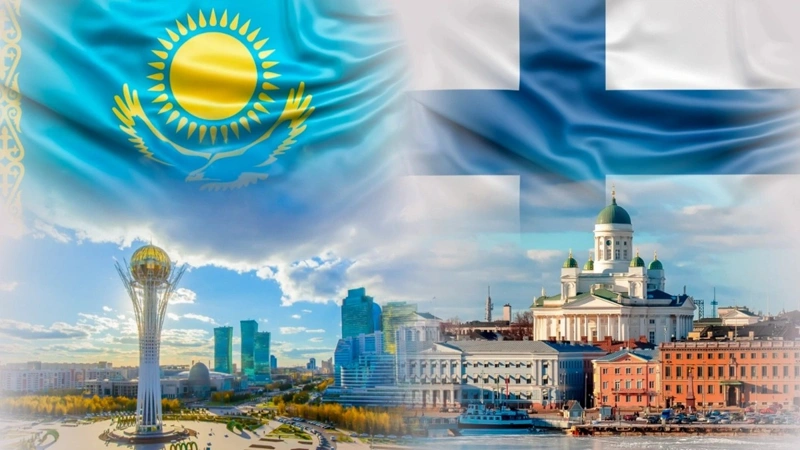
Trust and pragmatism
In September of this year, on the sidelines of the UN General Assembly in New York, President Kassym-Jomart Tokayev met with the President of Finland, Alexander Stubb. The parties discussed prospects for cooperation and the current geopolitical situation in the world. Tokayev expressed confidence that the upcoming visit of the Finnish leader to Kazakhstan would further unlock the potential of trade, economic, investment, and humanitarian cooperation between the two nations.
Kazakhstan and Finland share a long history of cooperation that began immediately after Kazakhstan gained independence. Diplomatic relations were established in 1992 and have since developed steadily.
Political dialogue remains active: the heads of state maintain regular contact—both through personal meetings and telephone conversations. A key milestone in strengthening bilateral ties was the opening of diplomatic missions: Finland’s Embassy began operating in Astana on March 3, 2010, and Kazakhstan opened its Embassy in Helsinki on March 15, 2012.
“Kazakhstan and Finland build relations on the principles of equality and mutual respect, viewing cooperation beyond geopolitical categories,” noted Dauren Aben, Deputy Director of the Kazakhstan Institute for Strategic Studies (KazISS) under the President of Kazakhstan.
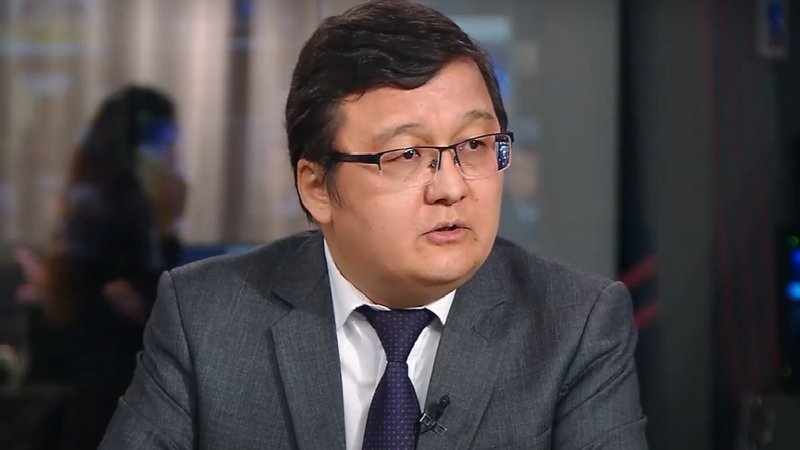
According to the expert, Kazakhstan pursues a multi-vector foreign policy. It is natural for the country to develop relations with a wide range of partners, and Finland is no exception.
“Suomi is of great interest to us, as it ranks highly in various international indices. For example, Finland has been recognized as the happiest country in the world for the last eight years, consistently taking first place, which says a lot,” Aben said.
Overall, Aben emphasized that cooperation between the two countries remains limited in scale, and the upcoming visit is expected to give it a new impetus.
“In Finland, a social state has been built, strong trade unions operate, and the level of corruption is among the lowest in the world. These are areas in which Kazakhstan also strives for progress. Therefore, Finland’s experience in building a welfare society is undoubtedly valuable for us,” the KazISS expert stated.
At present, political interaction between Kazakhstan and Finland follows a pragmatic path, focusing on sustainable development and innovative partnership.
“Cooperation is developing in the fields of green economy, innovation, and education. Finland supports Kazakhstan’s political modernization and reform agenda. The main priorities are environmental policy, renewable energy, digitalization, and human capital development,” noted Meruert Manapova, Senior Expert at the Center for Trade and Investment Policy of the Institute of Economic Research.
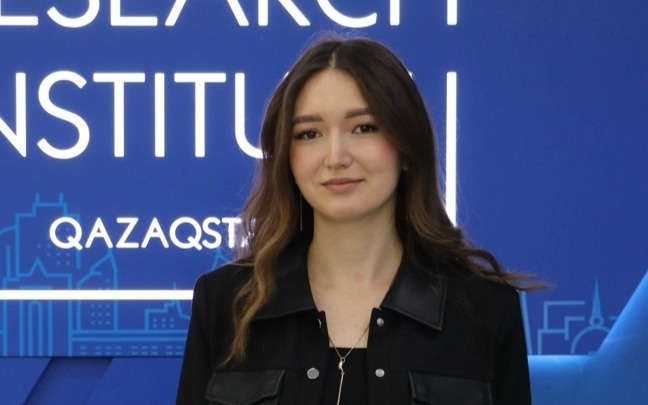
In 2025, the two sides signed a memorandum of cooperation in the field of “green technologies and energy efficiency.”
An Intergovernmental Commission on Trade and Economic Cooperation operates between Kazakhstan and Finland, along with specialized working groups in the fields of energy, transport, agriculture, and education.
Economy and investment
Economic cooperation remains one of the key components of the Astana–Helsinki partnership. According to the Ministry of Foreign Affairs of Kazakhstan, from 2005 to the second quarter of 2025, the gross inflow of direct investment from Finland into Kazakhstan reached $486.6 million.
Currently, about 70 companies with Finnish capital are registered in Kazakhstan, including well-known brands such as Nokia, Orion Pharma, Tikkurila, Metso, Kone, Lamor, and Peikko.
“In recent years, the Finnish side has shown increased interest in cooperation with Kazakhstani partners. It should be noted that Kazakhstan accounts for nearly 90% of Finland’s total trade with Central Asian countries. Kazakhstan views Helsinki as one of the key investors from Northern Europe,” said Lidiya Parkhomchik, an expert at the Institute of World Economics and Politics (IWEP).
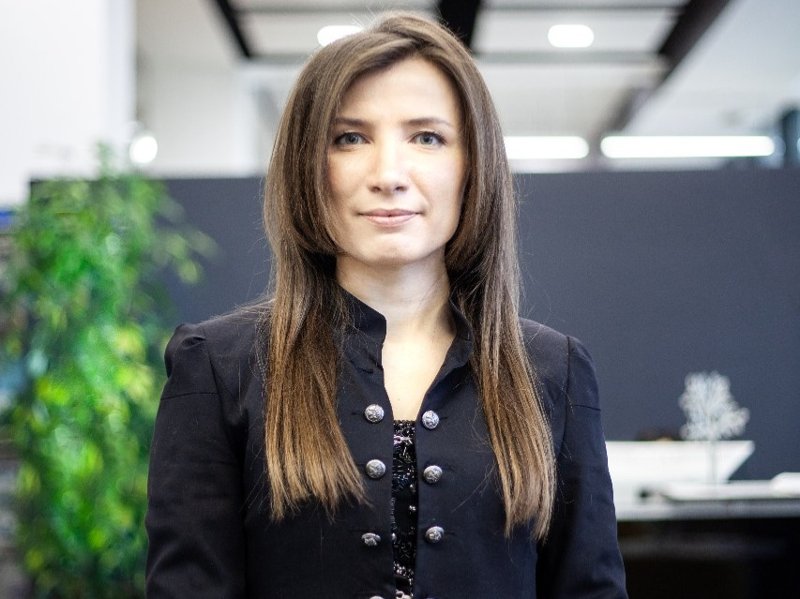
Kazakhstan’s exports to Finland mainly consist of industrial and chemical products—sulfur, ferroalloys, semiconductor devices, various sulfates and alums, as well as iron and steel products and components for cars and tractors.
Finland, in turn, supplies Kazakhstan with high-tech and industrial equipment. Key import categories include machinery and mechanisms for earthworks, engines, power units, pharmaceuticals, equipment for soil sorting and processing, geodetic and topographic instruments, and passenger cars.
“It can be said that we export primarily raw materials, while Finland supplies high-value-added products. There is certainly room for growth in this regard. Finnish high technologies are well-known worldwide, and since Kazakhstan is striving to diversify its economy, we could intensify cooperation in creating joint enterprises and production facilities, as well as adopt Finland’s experience in renewable energy, forestry, and climate protection,” Aben emphasized.
In recent years, mutual trade turnover has declined. According to the State Revenue Committee of the Ministry of Finance, in 2024 bilateral trade amounted to $171.9 million—down 17.5% from the previous year. For the first eight months of 2025, trade turnover dropped to $89.5 million, a 31.1% decline compared to the same period.
“Finland is a member of the European Union, while Kazakhstan is part of the Eurasian Economic Union (EAEU). This creates differences in trade standards and technical regulations, as well as logistical and customs barriers. In addition, the global economic slowdown, fluctuations in commodity prices, and changes in transport routes have affected trade. Sanctions and geopolitical factors have also complicated exports to European markets,” explained Janara Berikkizy, an expert at the Center for Trade and Investment Policy.
Nevertheless, the potential for economic cooperation remains high. In recent years, Finnish investors’ interest in Kazakhstan’s economy has grown significantly. According to Manapova, direct investment from Finland amounted to $22.7 million in 2023, $41.8 million in 2024, and $24.2 million in the first half of 2025.
“Thus, investments from Finland in 2024 increased by 84.2% compared to the previous year. This growth indicates the restoration of economic partnership and the strengthening of Finnish business confidence in Kazakhstan’s market,” the expert stressed.
Kazakhstan is of particular interest to Finland in renewable energy, green technologies, and rare earth metals. By developing these sectors, the two countries aim to restore trade balance and open new market opportunities.
“Finland, where renewable energy accounts for over 50% of consumption, has practical experience in implementing sustainable technologies. Kazakhstan, in turn, has set a goal to achieve carbon neutrality by 2060, and in this context, Finnish experience is of strategic value,” the expert noted.
According to Manapova, Finnish companies are also interested in education and innovation, digital technologies, metallurgy, and the agro-industrial sector. In agriculture, Finland’s experience in smart farming and environmentally friendly production aligns with Kazakhstan’s modernization goals.
Parkhomchik noted that work has been underway for several years to create a transport corridor branch focused on Northern Europe. The logistics company Nurminen Logistics Services plays an active role, ready to invest in developing container transportation along the China–Kazakhstan–Finland–Europe route via the Trans-Caspian International Transport Corridor. The parties hope to launch a regular joint container service between China and Finland.
“In March 2022, a pilot container train was sent through the Altynkol–Khorgos border crossing. In 2024, Kazakh and Finnish logistics operators signed a memorandum on developing container transportation between China and Finland through Kazakhstan. According to the document, ‘KTZ Express’ and Finnish logistics companies will jointly promote this route, turning it into a stable channel for international trade,” she said.
From school reforms to cultural bridges
Experts note that Finland has one of the most efficient and progressive education systems in the world.
“Finland is rightfully considered a global leader in education—both primary and higher. Finnish students consistently rank high in international PISA assessments, and the country’s universities are among the best in the world. Kazakhstan is also adopting elements of the Finnish education model, emphasizing critical and creative thinking, innovative approaches, inclusivity, and equal treatment of all students, regardless of academic success,” Aben noted.
Kazakhstan is interested in cooperation with the University of Helsinki and large-scale implementation of the school anti-bullying program “KiVa.” A pilot project based on the Finnish model is already being implemented in Kazakhstani schools. Under an agreement between “Nazarbayev Intellectual Schools” and the University of Turku signed in October 2023, the program is being introduced in 110 schools across Kazakhstan.
“Of course, it is impossible to copy another country’s model entirely; it is important to adapt the most effective elements to our context. Work in this direction is already underway,” the expert emphasized.
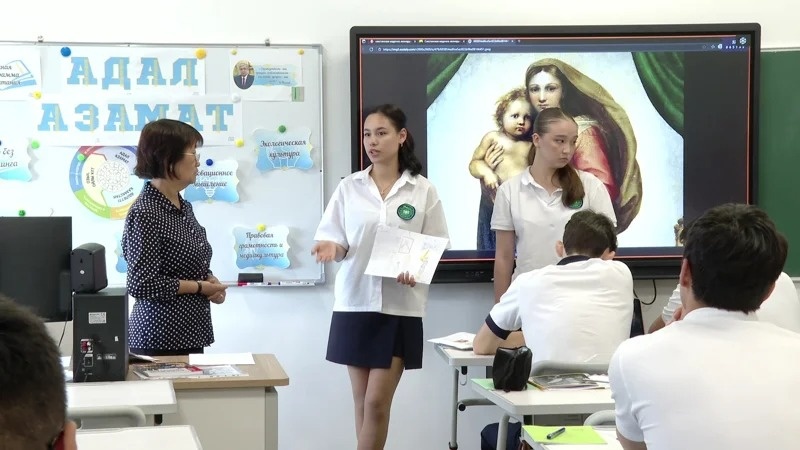
According to the Ministry of Foreign Affairs, 36 specialists—including master’s and doctoral students and research interns—have been trained in Finland under the “Bolashak” program. Cultural ties are also expanding: in 2018, the Kazakh Cultural Center “Saule” was opened in Finland, cooperating with the “Otandastar” Foundation. Cultural events and concerts are regularly held in Helsinki, including presentations of national symbols such as the Kazakh Tazy breed, showcased at the 2025 World Dog Show, where the Kazakh team won seven titles.
What the parties intend to discuss
According to Dauren Aben, geopolitical issues will top the agenda, as both Kazakhstan and Finland border Russia and face sanctions-related challenges.
“The EU has already introduced the 19th package of sanctions, which naturally affects our relations. The decline in trade turnover is largely due to Finland’s obligation to comply with EU restrictions on certain supplies under the sanctions regime. In this context, I believe the two leaders will discuss how to enhance trade and economic cooperation without violating sanctions,” he said.
He also suggested that the sides may discuss concrete projects and identify sectors of Kazakhstan’s economy that could attract Finnish investment.
“We know how high the demand is for Finnish paper and paint—why not develop production of these goods in Kazakhstan? We have potential for cooperation in agriculture and the forestry industry. This could lead to mutually beneficial technology transfers, experience exchange, and joint production,” Aben added.
Experts believe that the changing geopolitical landscape highlights Central Asia as a new direction for Finnish business. At the same time, Kazakhstan gains several advantages. According to Parkhomchik, strengthening B2B dialogue will become an important driver of further trade growth.
She noted that digital technologies and telecommunications could become particularly promising areas for cooperation.
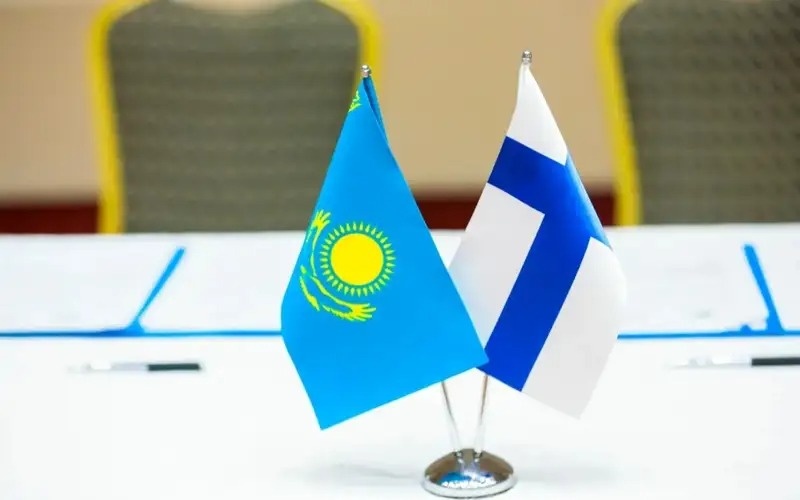
“It is no coincidence that Kassym-Jomart Tokayev identified the digital sector as a priority for joint projects with Finland and expressed readiness to create favorable conditions for attracting Finnish IT technologies,” she said.
According to Parkhomchik, to stimulate economic growth, Kazakhstan needs to overcome several challenges—first of all, to return trade volumes to the levels of the early 2000s, when they reached around $800 million.
“That is why it is now crucial for Astana to form a pool of potential export products that could interest Helsinki. The key task is to diversify trade and strengthen connections between the business communities of both countries,” she noted.
The expert emphasized that Kazakhstan consistently reaffirms its commitment to the principles of responsible trade and transparency in exchange for expanding cooperation, particularly in joint technological production.
“Practice shows that Finnish companies highly value reputation and long-term partnerships. In this context, Kazakhstan stands out as an ideal trade partner and a reliable ally for Finland in Central Asia,” she concluded.
Earlier, it was reported that President of Finland Alexander Stubb will pay an official visit to Astana on October 28–29 at the invitation of President of Kazakhstan Kassym-Jomart Tokayev.
